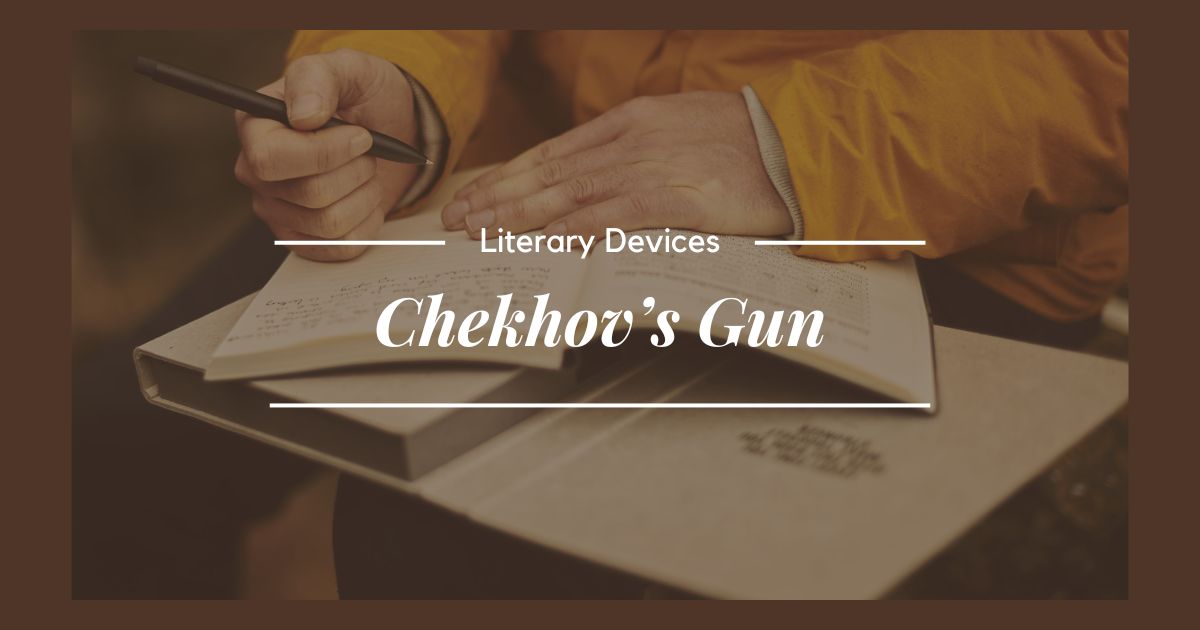And by blue balls, I mean that distinct lack-of-payoff feeling – that thwarted sense of expectation. Plot-wise, of course.
In the writing world, there’s a fundamental principle known simply as “Chekhov’s Gun” that embodies the essence of narrative efficiency and, importantly, foreshadowing. It’s not just a rule of thumb, it’s a tool to elevate a story from just words to a story.
As readers, we can feel it when stories don’t abide by this principle. Let’s talk about it.
So, what is Chekhov’s Gun?
“If in the first act you have hung a pistol on the wall, then in the following one it should be fired. Otherwise don’t put it there.”
These words by the renowned Russian playwright Anton Chekhov himself succinctly capture the essence of his principle.
This principle speaks to the art of planting elements in a narrative that have significance and impact on the way the story unfolds. Here’s what it can do for a story:
- Narrative efficiency. It ensures that every scene, object, and line of dialogue contributes to the larger picture, avoiding any sense of, “What’s the point of this?”
- Foreshadowing. It’s an easy way for writers to subtly hint at future events, build anticipation, and keeping readers engaged.
- Satisfying payoffs. When the rifle finally goes off, the impact is greater because the audience is primed for it. It gives the narrative a sense of cohesion and inevitability.
What happens if a writer ignores Chekhov’s Gun?
Chekhov himself said that it’s wrong to make promises you don’t plan on keeping, and I quite agree. The consequences really can be profound on a story. It can create dissonance and a sense of unfulfilled promises (narrative blue balls).
Here’s how you can tell when this happens:
- Lack of payoff (blue balls). This is the obvious first. The rifle is featured prominently but never finds its moment, leaving the audience hanging. It’s like setting up a joke and forgetting to deliver the punchline.
- Narrative clutter. Readers may find themselves losing sight of the core narrative because they’re drowning in pointless information.
- Lost opportunities. These seemingly small details, when carefully woven into the story, can take it to new heights. Writers who don’t do this miss the chance to create a more immersive story.
I recently had this feeling while I was reading House of Flame and Shadow, particularly around a specific character, which I discuss here.
Details matter.
Chekhov’s Gun is not a rigid formula but a guiding principle – a reminder to writers to craft their stories with intention. Planting seeds to later bear fruit, creating a tapestry where every thread leads to a satisfying conclusion.
When writers embrace this principle, they invite us into a world where every detail matters, where nothing is extraneous, and where even the smallest objects carry weighty significance. It’s a world of narrative economy, where storytelling becomes a finely tuned art form.
Yet, as readers, we also hold the power of observation. We can appreciate the rifle on the wall, not just as a decorative piece, but as a promise waiting to be fulfilled. We can relish the satisfaction of connecting the dots, knowing that each detail was carefully placed for our discovery. And then try not to riot when this isn’t the case.
Happy reading!
I would love to have you around! Subscribe below.
Check out some of my other recent blogs:







